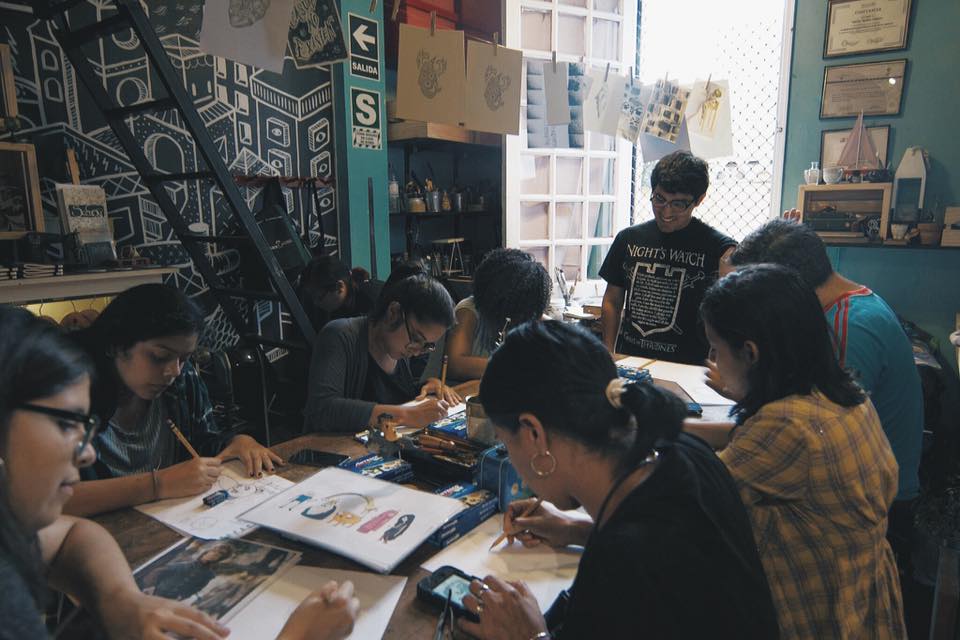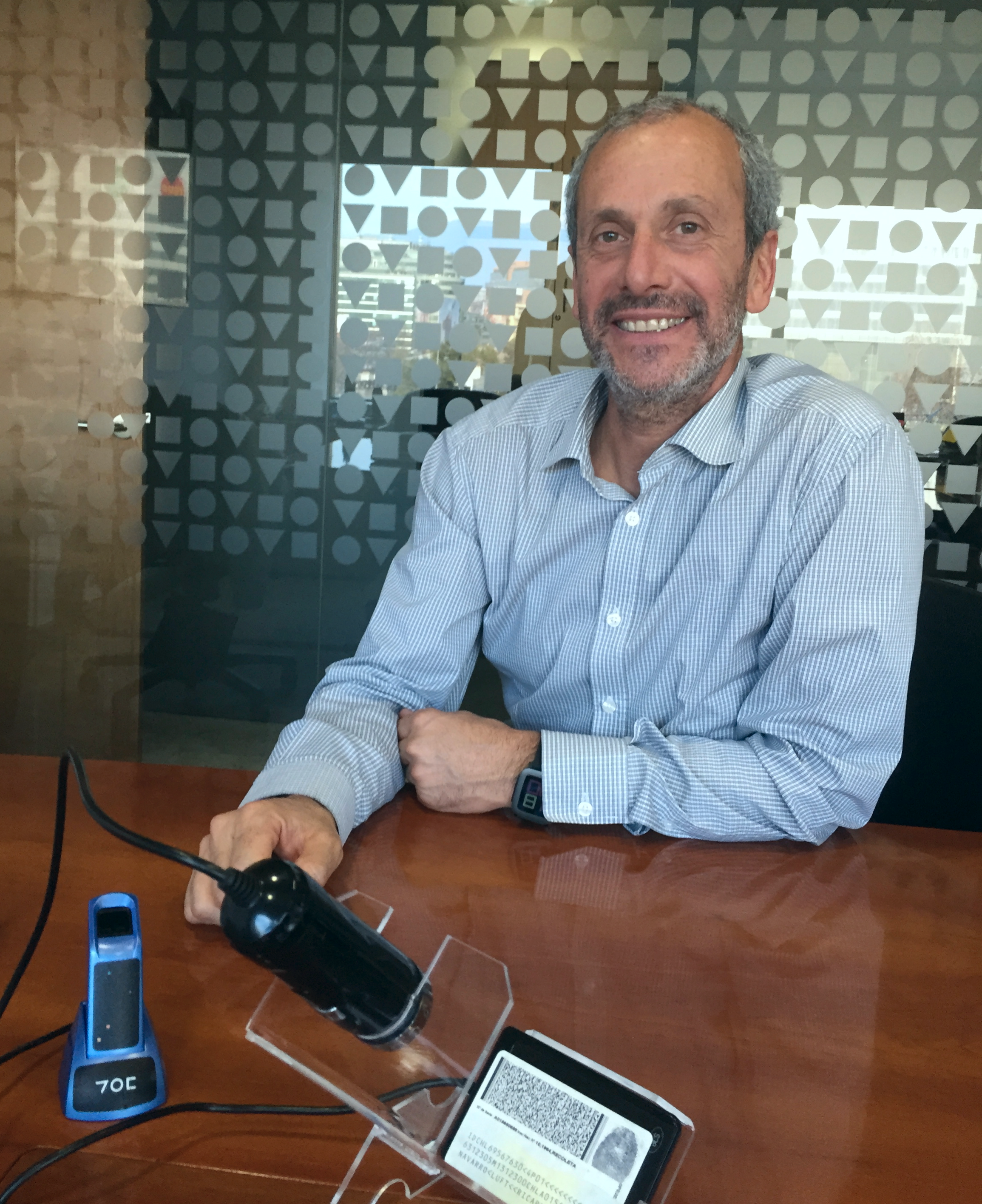When we first came across Isrealo Sucro, the young artist and entrepreneur was bent over a sketchbook, ballpoint pen in hand, working on a cartoon. The cartoon’s focus was a fish that was inspired by the waters of Peru.
Five years ago, Isrealo graduated from art school and turned his private art studio into an entrepreneurial enterprise. He transforms his cartoon sketches into cotton t-shirts, tote bags, notebooks, stickers and other forms of merchandise which he sells from his studio/boutique, El Mundo Papel in Miraflores, Lima, Peru.
Isrealo Sucro on left, Andrew Bagwell right.
“El Mundo Papel allows me to do what I LOVE while making money. That is something special.” For Isrealo, the term "starving artist" doesn't exist.
“I get inspiration from everything” he explains. “The ocean is a big inspiration. New experiences and traveling gets me the most excited to create.”
He had recently returned from Cusco and, inspired from the antiquated architecture, devised a new series of cartoon drawings featuring Incan houses coming to life with eyes and arms sprouting from the walls.
In addition to creating designs and selling merchandise, El Mundo Papel holds popular classes teaching linocuts, that allow students to create their own unique print.
“I love to teach,” explains Isrealo. “I can see how happy people get when they create something awesome and it gives me a great sense of satisfaction. My favorite age group to teach are kids because of the excitement they have for art.”
In the future, Isrealo hopes to give back to his community, especially to those kids in Lima that don’t have the opportunity to take art classes. “I would love to teach or create a project with the kids from Lima’s poor,” says Isrealo, reminding us of Lima’s dark side.
Between the neighborhoods of Miraflores de San Juan and Sucro is a 10-foot high cement wall rimmed with barbed wire. Nick named the Wall of Shame, its purpose is to divide the gorgeous modern neighborhoods from the shantytowns of Lima’s poor.
Source: BBC http://www.bbc.com/news/business-34451418
“By stimulating creativity in kids, I think we can really make a difference, especially for kids in poor neighborhoods.”
El Mundo Papel may have started as a way for Isrealo to sell custom t-shirts to family and friends, but it has evolved to become so much more. El Mundo Papel has become an oasis for everyday people to explore and support the arts in Peru. Looking forward, Isrealo can’t wait to give back to his community, and to expand El Mundo Papel workshops across Peru.















